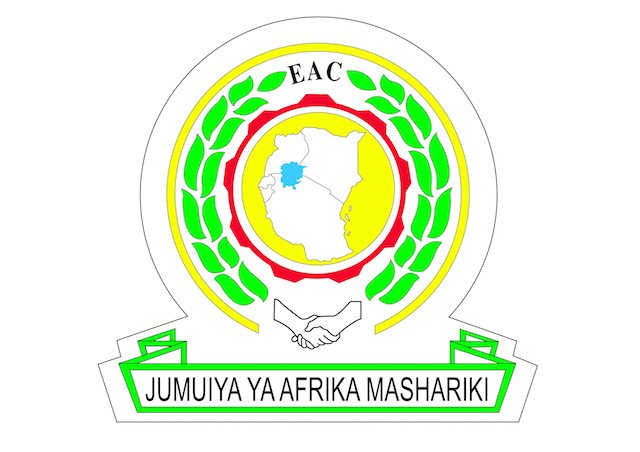
EAC tests activation of regional rapid response mechanism to infectious disease outbreaks
East African Community Headquarters, Arusha, Tanzania, 20th June, 2024: The EAC table-top simulation exercise (TTX) organized by the EAC Secretariat together with Partner States and other technical partners has successful tested the activation of the recently established regional rapidly deployable expert pool today in Nairobi, Kenya.
The expert pool has been set up since 2020 based on the lessons learnt from the Ebola outbreak in 2014/15 in West Africa as well as other infectious disease outbreaks in the EAC to ensure a timely regional response to disease outbreaks working with regional experts.
The key objective of TTX was to identify strengths and areas of improvement for collaboration and coordination between national, regional and continental level in an outbreak scenario and to develop a roadmap, including recommendations on how to integrate the EAC rapidly deployable expert pool and the AVoHC-SURGE initiative to allow for joint planning, deployments and capacity development.
A TTX is a facilitated discussion under a low stress environment where participants meet to discuss their roles during an emergency and to practice, evaluate and identify areas for improvement in their responses to a particular scenario.
The simulation exercise has been part of a 3-day workshop that was opened by a joint training of the Africa Centres for Disease Control and Prevention (Africa CDC) and the World Health Organization Regional Office for Africa (WHO AFRO).
The training aimed at strengthening capacities and knowledge among Partner States’ and EAC experts in relation to regional and continental guidelines and mechanisms in place for rapid response, centering around the African Health Volunteers Corps and Strengthening and Utilizing Response Groups for Emergencies (AVoHC-SURGE) initiative, implemented across the continent.
Speaking during the closing ceremony of the training, Dr Eric Nzeyimana, Principal Health Officer at the EAC on behalf of the EAC Deputy Secretary General in charge Infrastructure, Productive, Social and Political sectors, Hon. Andrea Ariik, said the EAC simulation exercise, using the lessons learnt and recommendations, puts the region in a good place and better prepared to outbreaks of epidemics and pandemics in the future.
On his part, Dr Radjabu Bigirimana, AVoHC Lead at the Africa CDC highlighted the mutual benefits of the close collaboration between the EAC Secretariat and the Africa CDC through the AVoHC-SURGE initiative. "A collaboration framework is under development that will allow us to join forces in outbreak response through joint rostering of experts, capacity building and deployments inside the EAC and on the continent"
Dr Arisekola Ademola Jinadu, Technical Officer IHR Monitoring and Evaluation Framework reminded participants on the importance to follow-up on the outcomes and recommendations of the simulation exercise at all levels to inform other ongoing preparedness and response efforts. .
The training and the TTX, brought together more than 50 experts from health, environment and livestock sectors in charge of emergency preparedness and response in the EAC Partner States as well as the EAC Secretariat, WHO AFRO, Africa CDC, Deutsche Gesellschaft für Internationale Zusammenarbeit (GIZ) GmbH and the German Epidemic Preparedness Team (SEEG) who together simulated a response to a cross-border Ebola Virus outbreak in the EAC region.
Notes to Editor
In addition to the COVID-19 pandemic, in more recent years, the EAC has experienced numerous outbreaks of infectious diseases and other events of public health concern, such as droughts, landslides and floods. In the last 2 years alone, East Africa has had several disease outbreaks such as cholera, Rift Valley fever, Marburg virus disease, Ebola and Monkey Pox. These outbreaks have reinforced the need to enhance public health emergency capacities, using a One Health approach, including human health, environment, agriculture and livestock sectors, amongst others.
To better prepare for public health emergencies, the EAC Secretariat, with support of the GIZ, commissioned by the German Federal Ministry of Economic Cooperation and Development (BMZ), and other technical partners such as Africa CDC and WHO Regional Office for Africa over the past years have supported the establishment and roll out of the EAC rapidly deployable expert pool, comprised of emergency preparedness and response experts from One Health relevant sectors of the EAC Partner States.
For more information, please contact:
Simon Peter Owaka
Senior Public Relations OfficerCorporate Communications and Public Affairs DepartmentEAC SecretariatArusha, TanzaniaTel: +255 768 552087Email: This email address is being protected from spambots. You need JavaScript enabled to view it.
About the East African Community Secretariat:
The East African Community (EAC) is a regional intergovernmental organisation of eight (8) Partner States, comprising the Republic of Burundi, the Democratic Republic of Congo, the Republic of Kenya, the Republic of Rwanda, the Federal Republic of Somalia, the Republic of South Sudan, the Republic of Uganda and the United Republic of Tanzania, with its headquarters in Arusha, Tanzania. The Federal Republic of Somalia was admitted into the EAC bloc by the Summit of EAC Heads of State on 24th November, 2023 and became a full member on 4th March, 2024.
